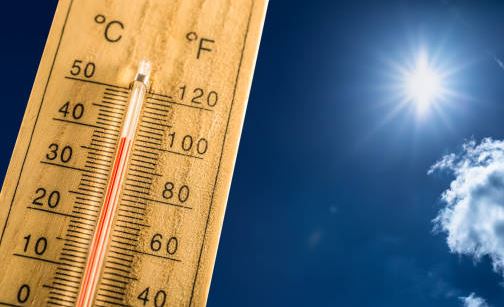Adapting to the Scorching Heatwaves of Hot Summer 2023: Impacts on Work, Aviation, Education, and Housing

Hot Summer 2023 Drives Sweeping Adaptations Amid Record Heatwaves, Highlighting Urgency in Addressing Climate Change (Photo: gettyimages)
Heatwave Challenges and Adaptations During Hot Summer 2023
According to usatoday.com, hot summer 2023 witnessed an enduring heatwave and record-breaking temperatures, signaling a concerning trend of longer and hotter summers in the United States, expanding from 78 to 95 days since 1952. This shift in climate has raised worries about the consequences of rising global temperatures, prompting various adaptations in daily life. These changes affect outdoor work regulations, aviation, road infrastructure, school closures, and rental mandates.
During hot summer 2023, extreme heat made outdoor work unbearable, with some nations enforcing mandatory breaks for outdoor labor during peak heat hours, while others, like Texas, resisted protective measures, eliminating local rules requiring water breaks for construction workers. Aviation faced challenges due to rising temperatures, necessitating payload reductions and longer runways for safe takeoffs, affecting flight schedules. The intensifying heatwaves damaged road infrastructure, impacting pavement integrity and raising infrastructure costs.
The consequences of extreme heat also extended to education, with schools closing or dismissing students early due to inadequate cooling systems. Rental mandates are evolving in response to rising temperatures, with some cities now requiring landlords to provide air conditioning. These adaptations emphasize the urgency of addressing global warming and developing resilient strategies to cope with the growing impacts of extreme heat.
READ ALSO: Dry Spell Sparks Concern Over Low Water Level in Rainy Seattle, Urgent Calls for Conservation
Education and Housing Challenges in the Heat of Hot Summer 2023
The consequences extend to education as schools grapple with record-breaking heat during hot summer 2023, forcing closures or early dismissals due to inadequate cooling systems. The need for cooling systems in schools is growing during hot summer 2023, with an estimated 13,700 K-12 public schools that didn’t require them in 1970 expected to need them by 2025.
Rental mandates are evolving in response to rising temperatures during hot summer 2023, with some cities requiring landlords to provide air conditioning alongside heating. The impact is also evident in school sports during hot summer 2023, with concerns about extreme heat leading to practice and match cancellations, particularly during the hottest months, as organizations like USA Soccer establish temperature-based guidelines for safe play.
As climate change continues to alter the fabric of daily life during hot summer 2023, these adaptations underscore the growing urgency of addressing global warming and developing resilient strategies to cope with the escalating impacts of extreme heat.
READ ALSO: Governor Phil Murphy Joins Calls for Senator Menendez’s Resignation Amid Bribery Charges









